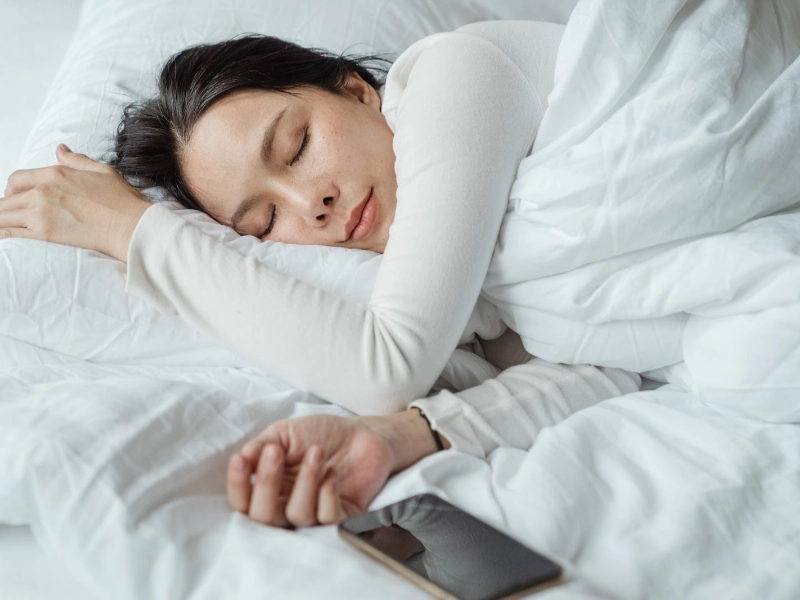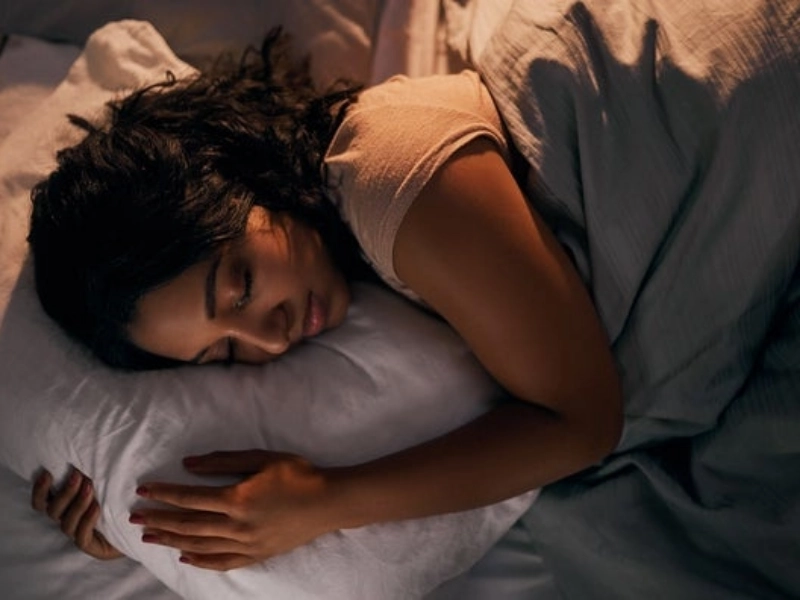The natural hormone called melatonin tells your brain when it's time to go to sleep. It is an effective treatment for jet lag and has the potential to lessen fibromyalgia symptoms.
However, melatonin is not the only natural sleep aid available; there are plenty others that are healthy and won't leave you feeling sleepy in the morning. Among them are:

Including more naturally occurring melatonin-producing foods in your diet is a better approach to enhancing your sleeping patterns. Goji berries, tart green apples, and cherries all have significant melatonin content. Another option is to sip on a cup of chamomile tea right before bed. In addition to being calming, this is a wonderful option for those who have acid reflux because it keeps the esophageal lining from being inflamed.

Consume foods high in omega-3 fatty acids, whole grains, nuts, and seafood to help promote healthy sleeping habits. A good way to encourage sleep is to try eating foods high in magnesium, which also helps with neurotransmitter function and reduces anxiety.
Two to three hours before you intend to go to bed, lower the lights in your house since intense light inhibits the formation of melatonin.

As it promotes speedier sleep, a glass of warm milk is frequently suggested as a sleep aid. Another meal that naturally encourages sleep is mushrooms, which have high levels of melatonin and tryptophan. Furthermore, kiwi fruit has a lot of antioxidants and serotonin, which may accelerate your sleep by more than 40%. Nuts like pistachios and walnuts are excellent sources of melatonin, as are eggs. However, if you do eat nuts, make sure to get unsalted varieties, as toasting them can reduce their melatonin concentration.

According to Buenaver, he puts blue-light filters on his electronics to avoid light suppression of the hormone and keeps the lights down in his house to encourage the creation of melatonin. In addition, he suggests magnesium to reduce cortisol release and adaptogenic herbs like ashwagandha and kava to reduce stress and encourage relaxation. He can unwind, go to sleep more quickly, and stay asleep longer thanks to this combo.

Melatonin is ineffective in treating chronic insomnia; however, it can be beneficial for those who struggle to go to sleep or have insomnia. Consult your healthcare provider if you experience insomnia on a regular basis.
Choose the lowest dose of melatonin if you choose to take it. Dependency can result from overuse. Furthermore, it's critical to remember that melatonin may pose particular hazards to individuals who are pregnant or nursing, as well as conflict with several cancer therapies. It is therefore preferable to follow your doctor's recommendations and utilize the supplements for brief periods of time only.